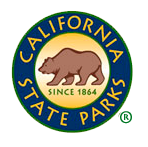The California Department of Parks and Recreation welcomes consideration of State Park System lands as potential research sites. If you intend to conduct research in any California State Park, please review this important information. Following these instructions carefully will help to prevent unnecessary permitting delays.
A scientific research and collecting permit is required for most scientific activities conducted within the California State Park System that pertain to natural resources, including, but not limited to, field work, specimen collections, and the collection of data. If you intend to collect specimens, data, and/or produce a written document of your findings, such as a dissertation, thesis, academic paper, report, or professional publication, then a permit is needed. Additional permits or approvals from other local, state, or federal agencies may also be required. It is the responsibility of the researcher to know what permits are required by other local, state, and/or federal agencies and to obtain all needed permits before the California State Park scientific research and collecting permit will be approved.
See California State Parks GIS Data and Maps to view or download park location and boundary information.
Application submissions:
Application requirements, instructions and forms to download are available on the research permits portal homepage at https://researchpermits.parks.ca.gov.
Applications should be submitted 60-90 days ahead of desired permit start date.
If you are applying for a permit renewal in 2025, please put the word “Renewal” in your project title.
Please send questions to nrd.research@parks.ca.gov.
Permit Renewals
Permits may be issued for a maximum period of one year. Permit renewals may be requested by submitting another application at https://researchpermits.parks.ca.gov. Use the word “Renewal” in your project title. Send a summary report of activities conducted and results obtained under the previous permit to nrd.research@parks.ca.gov. If there are significant changes to your methodology or project description or design from what was indicated in the original permit, a new permit application should be submitted.
Permit Decision Criteria and Standard Conditions
Permits are granted to further biological, geological, soil, and paleontological scientific research within units of the California State Park System. Scientific research and studies designed to increase the understanding of ecological processes and resources in parks are a valuable source of information for Park managers.
One of the primary functions of the California State Park System is the protection and preservation of all natural features occurring within its boundaries. The Department receives a considerable number of collecting and research requests, and is obliged to give very careful consideration to every request involving removal, destruction, or modification of any feature of the California State Park System, however minor it may seem.
Only those proposals involving distinct benefit to the California State Park System can be granted by the Department. Benefits associated with granting a permit may involve the preparation of published or unpublished reports, which add to the understanding of a park unit's resources. These reports may provide information or data useful to the Department in the protection, perpetuation, management, and/or interpretation of natural resource values within one or more units of the California State Park System. Applied ecological research is especially valuable.
Permits to collect specimens are issued only to qualified persons participating in research projects in which the specimens collected are an integral part of, and necessary to, the specific project involved.
Collected materials may not be used for commercial profit or personal benefit.
The Department does not issue permits for general classroom collecting, either supervised or unsupervised, because of the cumulative impact that students participating in such activities may have on the natural features of the California State Park System.
All collecting and research must be done in a manner that minimizes the impact on the park unit's resources. When appropriate, the Department shall set specific conditions requiring that collection be done in an inconspicuous manner, away from roads, trails, and developed areas.
As a condition of all permits for scientific research, the investigator shall submit a summary of the information acquired to the Department and make available any data and material published as a result of the research. Renewal of any permit is contingent on receipt of summary reports by the Department.
In addition to any permit issued by the California Department of Parks and Recreation, written approval may also be required in some circumstances by the California Department of Fish and Wildlife and other local, state, or federal agencies. The Department of Fish and Wildlife may issue permits, subject to such restrictions and regulations as may be imposed by the Fish and Game Commission, to take or possess mammals, birds and the nests thereof, fish, amphibians, reptiles, invertebrates, plants, or any other form of animal life or of plant life in any part of the state for scientific, educational, or other purposes.
Certain research activities may require environmental review. Your application will be analyzed, and if review is required subject to the California Environmental Quality Act (CEQA), you will be promptly notified of additional necessary steps in the processing of your permit application. Please be aware that, if the preparation of CEQA documentation is required, the start of your research activities could be significantly delayed.
Refer to the submission portal home page at https://researchpermits.parks.ca.gov for a complete list of standard conditions and restrictions. Please note that, in addition to these standard conditions and restrictions that apply to all units of the California State Park System, there may be site-specific conditions and restrictions added to your permit that you must also adhere to.
